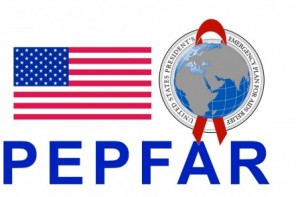One thing I love about living abroad are the questions and opinions about American politics. When I was here in 2008, in the leadup to the election, I was amazed by how informed my Rwandan compatriots were about our politics. I couldn’t name their defense minister, but they could talk in detail about the Iraq war strategy.
A lot of the American system, though, confounds. At the moment, there’s a piece in The Atlantic about a senate race in my home state of West Virginia, where should-have-been-a-shoe-in Democrat Joe Manchin is vying against where’d-he-come-from John Raese for the now-empty seat of legendary Senator Robert Byrd, who died this summer.
Judging from press coverage — I read a 900 or so word story in the NYT yesterday about the candidates in Delaware’s election — local is the new national in this election. It seems to me, from afar, that so much is up for grabs, and at stake, that every race is a possible Magic 8 Ball for the country. At least, that’s what seems to me to elevate to National Magazine level an otherwise local story about a senate race.
But here’s why I put it on my blog: There’s shenanigans at work in the campaign ads in West Virginia, as there surely is everywhere. As The Atlantic tells it, Raese is trying to portray Manchin as a pro-cap-and-trade, when in actuality neither of them really is. Why varnish the truth? Because being anti-cap-and-trade is, the The Atlantic says, the vogue thing at the moment, especially for “tea partyers.”
In America, political messaging is like a negative reversal of the Six Degrees of Kevin Bacon: Start with a thing (or better, a guy — villains are scientifically proven to be great for political narratives) you don’t like, and then do whatever it takes to link your opponent to that thing or guy. Raese’s ad seems to be the political equivalent of linking Ralph Macchio to Kevin Bacon through a make-up artist. Except, you know, also not entirely totally true.
The Atlantic doesn’t outright say Raese lied, because he apparently doesn’t. He merely suggests a whole bunch of things that on their own are technically true but when you add them up give you a false impression — that Manchin signed, or maybe invented, the cap-and-trade law. Don’t know what “the cap-and-trade-law” even is? Me either. But it doesn’t matter, because political messaging is that good: There’s a thing out there that sounds like something, and even if you don’t know what it is, you unconsciously know how to feel about it.
I don’t mean to dump on Raese. I just saw this Atlantic piece; for all I know, Manchin’s doing the same thing, I just haven’t read about it yet. What I do mean to do is offer to my friends out here a little window on the theater of American politics. And ask this: Do your nations accept dual citizenship?




I just arrived in the US after five years in Germany (which, btw, allows dual citizenship for those born to an American with a German paternal bloodline — my daughter is dual) and am appalled by the ridiculous lines being taken in the elections. In Wisconsin, where I am temporarily, the opponent in the Senate race is trying to boot Feingold for – gasp – agreeing to healthcare reform and one of the local races is running on the theme of high-speed rail (as in, they have stimulus money to build a link between the 2 biggest cities here and some want the money given back because they don’t need rail in the state). Cap and trade has long been a debate in Germany but still, these are petty petty politics going on here. Just wish they’d have a campaign time limit as they do in the Vaterland, where ads are limited to 30 days prior to the election.
Thanks for the Wisconsin perspective! I was also thinking about campaign limits — I was in three African countries before their elections this summer (well one didn’t quite go off, but still) and all have campaign limits… technically. Of course the party in power has access to a machinery it can use in subtle non-campaigning ways to campaign, which is a danger of limits, I suppose. But their improbability in American politics would be, I would guess, all about the American narrative of the little guy making big — how can the little guy beat the big guy if he only has two weeks to get his name out in the sunlight? We love our Davids back in America. But we’ve spent so much time in the shadow of Goliath we don’t notice as he gets bigger and bigger and bigger…
Same thing happens in Canada. (And we should know: we get lots of elections!) The reason is simple: framing works. Really, really well. Far better than anything else. If you don’t define your opponent, your opponent will define you and you will lose.
Three differences make things more transparent in Rwanda, I think:
1. More Rwandans are politically-aware, so they see through campaign slogans.
2. More Rwandans are decided, so slogans probably won’t change their minds anyway.
3. America’s campaign managers have university degrees in making opposing politicians look bad.
None of it has anything to do with policy.